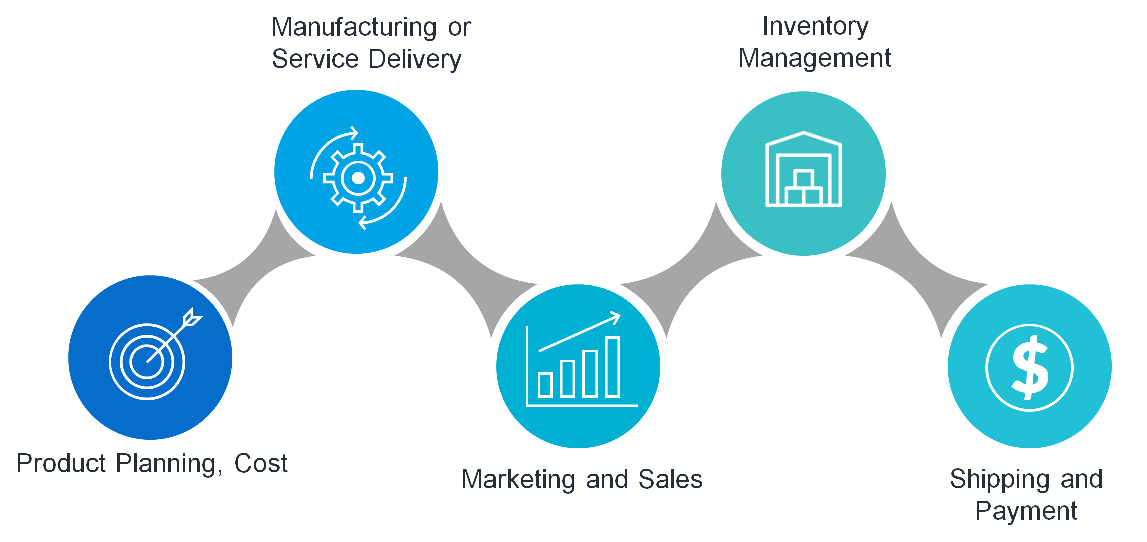ERP & CRM Softwares

ERP are transforming business activities and re-defining business partnerships. Enterprise Applications create value by using the Internet, intranets, cellular networks and other digital technologies to attract and communicate with clients, suppliers, employees and other key stakeholders.
Efficient and effective enterprise applications services in areas such as Resource Planning planning (ERP), customer’s Relationship Management (CRM) are essential to ensure competitiveness and smooth operations
ERP System is business-management software—typically a suite of integrated applications—that an organization can use to collect, store, manage and interpret data from many business activities, including:

ERP provides an integrated view of core business processes, often in real-time, using common databases maintained by a database management system. ERP systems track business resources—cash, raw materials, production capacity—and the status of business commitments: orders, purchase orders, and payroll. The applications that make up the system share data across various departments (manufacturing, purchasing, sales, accounting, etc.) that provide the data. ERP facilitates information flow between all business functions, and manages connections to outside stakeholders.